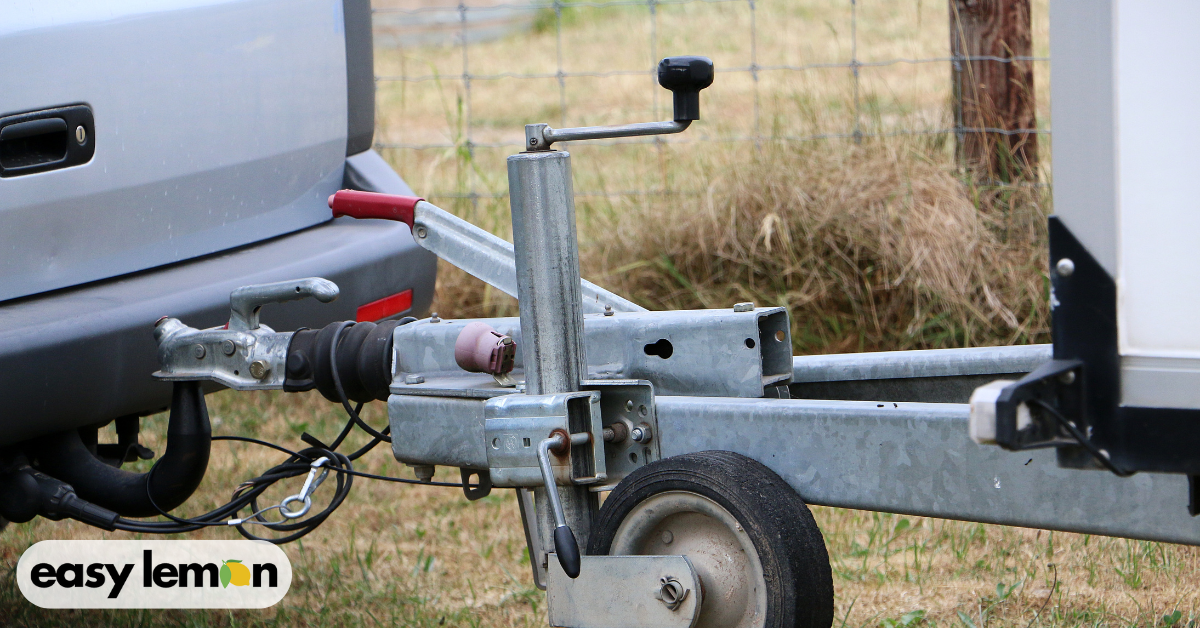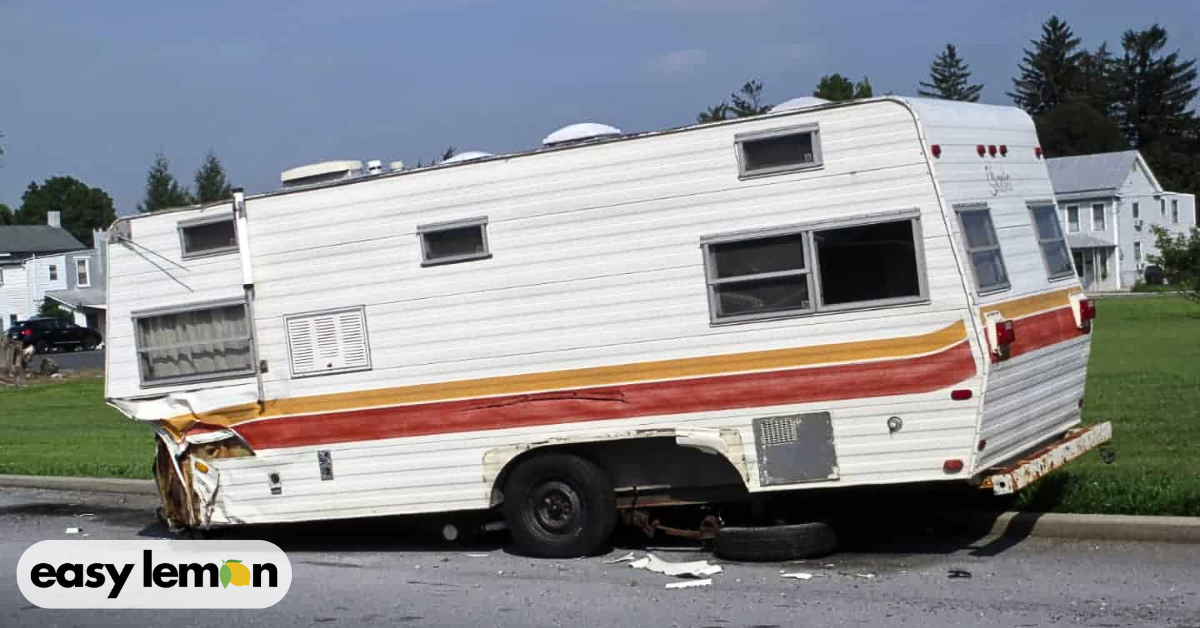Nothing ruins a road trip faster than a travel trailer that keeps breaking down. Whether it’s electrical failures, plumbing issues, or structural defects, a faulty trailer can turn your dream getaway into a stressful nightmare. Lemon law was created to protect you from defective cars and deceptive manufacturers. This is why it is important that you understand your rights under lemon law, if you are a victim of purchasing a travel trailer from the manufacturer or dealership.
Travel trailers are covered under the Lemon law but depend on your state’s specific laws. Some states cover all types of travel trailers under the Lemon law, while others only protect motorized recreational vehicles (RVs), or exclude towable trailers entirely. Even if your trailer isn’t covered by the Lemon law, you may still have options through warranty laws or consumer protection claims. The key is knowing what applies to your situation and taking the right steps to get the compensation you deserve.
At Easy Lemon we can help you fight back against manufacturers that fail to fix your defective travel trailer. With decades of experience in Lemon Law, we offer extensive Lemon Law attorney services that extend to travel trailers. Whether your travel trailer is covered under Lemon Law or you need to explore other legal options, you don’t have to go through this alone. Contact us today for a free case evaluation.
This blog post will cover how lemon laws apply to travel trailers, which states offer Lemon law protections for travel trailers, how to determine if your trailer qualifies as a lemon, and how to file for a Lemon law claim for your defective travel trailer.
Do Lemon Laws Apply to Travel Trailers?

Lemon laws exist to protect buyers from defective cars. But when it comes to travel trailers, each state has different rules. Some states clearly include them under Lemon law protections, while others leave them out entirely.
Additionally, if your state covers travel trailers, the law may require the manufacturer to repair, replace, or refund a defective trailer that meets specific criteria. If your state doesn’t cover them, you may still have legal options through warranty laws or consumer protections.
Furthermore, not all travel trailers are treated the same under lemon laws. There’s a big legal difference between motorhomes and towable trailers, and it depends on whether the trailer has an engine. Motorhomes, also known as Class A, B, or C RVs, are self-propelled, meaning they function like a car. Because of this, they’re more likely to be covered under lemon laws, though the coverage might only apply to the part of the RV that includes the engine and drivetrain, not the living space.
Towable trailers, like fifth wheels, toy haulers, and pop-up campers, are a different story. Since they don’t have an engine and must be pulled by a car, some states don’t consider them “cars” under their lemon laws. This means they might not qualify for protection, even if they have major defects. However, some states do include towable trailers in their lemon laws, so it’s worth checking your state’s specific rules.
States with the Strongest Lemon Law Protections for RVs and Travel Trailers
Some states offer strong protections for travel trailer owners, while others provide little to no help. Across the U.S., about 27 states have specific Lemon law protections for travel trailers, though the details vary. Some states cover all parts of the trailer, while others only cover the chassis or major mechanical components. For example, states like Arkansas, New Jersey, New York, Utah, Vermont, Washington, Missouri, and Louisiana cover only the chassis under their Lemon law, while Texas and Connecticut include towable RVs.
Since every state’s laws are different, the best way to know your rights is to check your local Lemon law statutes or talk to a Lemon law attorney who specializes in travel trailers. If your state doesn’t include travel trailers under lemon laws, don’t worry, there are still other ways to get compensated for a defective trailer. The Federal Lemon Law, also known as the Magnuson-Moss Warranty Act, can cover your lemon trailer if your state law doesn’t cover it as long as the manufacturer or dealer made clear guarantees in the warranty.
How to Determine if Your Travel Trailer Qualifies Under Lemon Laws

If your travel trailer is constantly breaking down, you might have a case under your state’s Lemon law, if your state covers trailers. Generally, to qualify as a lemon, the trailer must have serious defects that impact its use, value, or safety and the manufacturer must have had a reasonable chance to fix the problem.
A common rule is that the trailer must have been in the shop multiple times for the same issue, usually three or four repair attempts, or out of service for 30 or more days due to repairs. Safety-related defects, like faulty brakes, electrical failures, or propane leaks, may qualify for Lemon law help faster.
It’s also important to know who is responsible for fixing the trailer. In many cases, the manufacturer is responsible for handling warranty repairs, not the dealership that sold you the defective RV. If the manufacturer refuses to fix the issue, Lemon law protections (if available in your state) may come into play.
How to File a Lemon Law Claim for a Travel Trailer
To get compensation for your defective travel trailer, you’ll need to follow the right steps. Filing a Lemon law claim involves documenting the issues first, giving the manufacturer a chance to fix them, and taking legal action if necessary. Here’s how to handle the Lemon law process and protect your rights:
1. Keep Detailed Records of the Issues
Before you can file a claim, you need proof. Keep a record of every defect, repair attempt, and conversation with the dealer or manufacturer. Save repair invoices, work orders, and emails that document the problems and the steps taken to fix them. It’s also important to note how these defects impact your trailer’s use, value, or safety.
For example, if a water leak causes mold, or if an electrical failure makes it unsafe to travel, take pictures, videos, and whatever can make your claim more tangible. The more evidence you have, the stronger your claim.
2. Give the Manufacturer a Reasonable Number of Repair Attempts
Lemon laws generally require manufacturers to be given a fair chance to fix the issue before you can take further action. The number of required repair attempts varies by state but is usually three to four times for the same problem. If your trailer has been out of service for 30 or more days due to repairs, it may automatically qualify as a lemon. If the dealer or manufacturer is dragging their feet, don’t wait, start exploring your legal options.
3. Notify the Manufacturer in Writing
Once you’ve given the manufacturer a chance to fix the defects, the next step is to send a formal complaint letter. This letter should include a clear description of the issue, a summary of your repair history, and a request for a buyback or replacement. Be sure to attach copies of supporting documents like repair orders, receipts, and warranties. Additionally, some states require this letter to be sent via certified mail, so check your state’s rules to ensure compliance.
4. File a Lemon Law Claim with the Manufacturer
Some states require you to file a Lemon law claim through an arbitration program before you can take legal action. Even if arbitration isn’t mandatory, manufacturers often have a dispute resolution process in place. If you go this route, make sure you fully understand the process and carefully review any settlement offers before agreeing to anything. In some cases, manufacturers may offer compensation that seems fair but doesn’t fully cover your losses, so don’t rush into a decision.
5. Consult a Lemon Law Attorney if Necessary
If the manufacturer refuses to cooperate or offers an unfair settlement, it’s time to bring in a professional. A Lemon law attorney can negotiate a better deal, take legal action, and help you get the compensation you deserve. The good news is that many attorneys offer free consultations and work on a contingency basis, meaning you don’t pay unless they win your case.
At Easy Lemon, our experienced and dedicated Lemon law attorneys have helped countless travel trailer owners like you gain their rights under lemon law. Schedule a free consultation with us today and let us help you get the compensation you deserve.
What if My State Doesn’t Cover Travel Trailers Under Lemon Laws?

If your state’s Lemon law doesn’t apply to travel trailers, don’t panic; there are still other ways to get help. Most manufacturers provide warranty coverage, and if they refuse to honor it, you may have a case under the Magnuson-Moss Warranty Act. This federal law protects consumers from warranty breaches. This law applies to all consumer product written warranties including motor vehicle and RV/ motorhomes warranties. In other words, if an RV manufacturer fails to comply with its written warranty and is unable to fix the defective RV after a reasonable number of attempts, the RV owner may be able to file a Lemon law claim against the manufacturer.
You may also have legal options under general consumer protection laws, especially if the manufacturer or dealer misrepresented the trailer’s condition. If the trailer was sold with serious undisclosed defects, you might be able to file a breach of contract or fraud claim.
Furthermore, it will be in your best interest if you consult an experienced Lemon law attorney. An experienced Lemon law attorney can help you explore these options and also help you make informed decisions.
Can I Get a Replacement or Refund for My Defective Travel Trailer?

The type of compensation you may be entitled to depends on your state’s lemon laws, the manufacturer’s policies, and federal laws. For a defective travel trailer, the options available are replacement, refund, or a cash settlement.
Replacement Option
If you still want a working travel trailer, a replacement may be the best solution. In this case, the manufacturer provides a new, identical, or comparable model to replace your defective one. This option makes sense if you’re happy with the brand and just want a properly functioning trailer. However, keep in mind that manufacturers may deduct a reasonable usage fee based on how long you used the defective trailer before filing the claim.
Refund Option
A refund is often the preferred option for consumers who want to move on from the defective trailer entirely. A full refund typically covers the purchase price, taxes, registration fees, and any other costs directly tied to the sale. However, like with a replacement, manufacturers may deduct a fee for the time you used the trailer. If you’re fed up with the defects and no longer want to deal with the brand or model, a refund is usually the cleanest way out.
Cash Settlement
In some cases, manufacturers may offer a cash settlement instead of a full refund or replacement. This means they’ll provide a partial refund or reimbursement for repair costs without taking back the trailer. A cash settlement can be a good choice if you’re willing to keep the trailer despite its issues or if the defects don’t impact its usability. However, not all settlements are fair, some manufacturers try to lowball consumers to avoid a bigger payout. Before accepting a settlement, it’s wise to consult a Lemon law attorney to make sure you’re getting a fair deal.
Need a Lemon Law Attorney for Your Travel Trailer?
If your travel trailer keeps breaking down, you might be wondering if the Lemon law can help. The answer depends on your state. Some states protect travel trailers under lemon laws, while others only cover motorized RVs or exclude them entirely. Even if your trailer isn’t covered, you may still have options through warranty laws or consumer protection claims. You need to understand your rights so that you don’t get cheated by the manufacturer in the process of getting compensation. A Lemon law attorney by your side and make a lot of difference because they’re experienced with both state and federal lemon law and will get you the compensation you deserve.
At Easy Lemon, we have a deep understanding of lemon law and can help you throughout the Lemon law process. Contact us today for a free consultation and let us help you reclaim your right under Lemon law.


